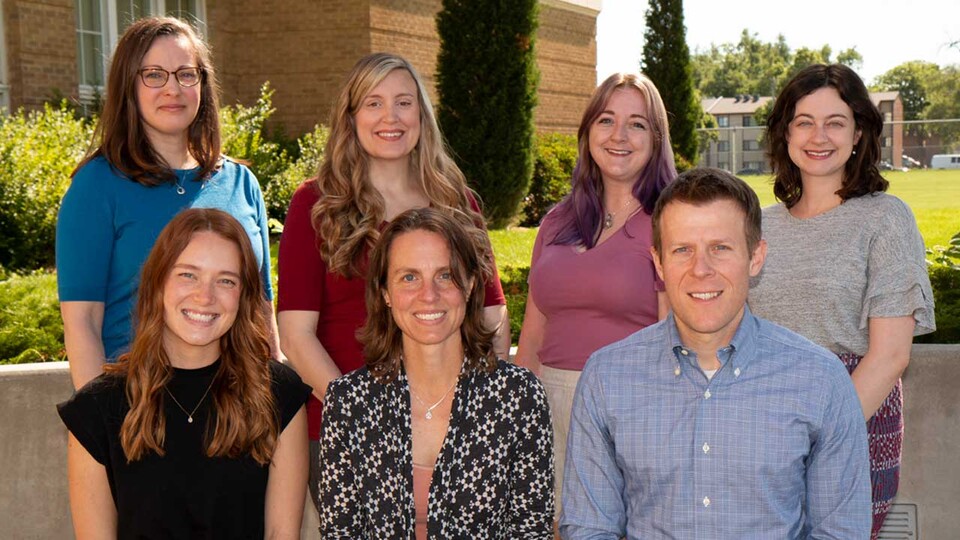Center for Research on Children Youth Families and Schools
Chuck Green, August 5, 2022
Multi-institutional study explores how students approach course work once class ends
As learning environments increasingly rely on online course formats that work with busy college student schedules — particularly after disruptions caused by the COVID-19 pandemic — a better understanding of how students complete out-of-class assignments is crucial to ensuring equitable opportunities for academic success.
A team of Nebraska researchers is leading a collaborative, multi-institutional project to explore undergraduate students’ strategies for completing out-of-class homework (including worksheets, take-home quizzes and online assignments) and what barriers they encounter.
The research team incudes Brian Couch, associate professor of biological sciences; Kati Brazeal, associate professor of practice, biological sciences; and Lorey Wheeler, co-director, Nebraska Academy for Methodology, Analytics and Psychometrics, and CYFS research associate professor; Gabrielle Johnson and Sarah Spier, biology professors at Southeast Community College; and Dana Kirkwood-Watts and Allison Upchurch, graduate research assistants.
Couch notes that students approach out-of-class work differently, without help from their instructor and with less interaction with their classmates.
“With the pandemic, we realized out-of-class teaching tends to be unstructured,” Couch said. “In class, instructors can help guide students and connect them to their peers. But out of class, students are more on their own.”
Researchers are also investigating how external factors may affect a student’s ability to access and learn from online course material.
Some external factors, such as time constraints created by jobs or family obligations, lack of a computer or suitable device, or unreliable internet service, could create disproportionate challenges for students from historically underserved socioeconomic backgrounds.
During the 2021-22 academic year, researchers gathered data from undergraduate biology courses at the University of Nebraska–Lincoln and Southeast Community College. Using Zoom videoconferencing, the team watched students complete assignments live and recorded their interactions.
Researchers surveyed more than 1,000 students in 12 courses and completed 25 virtual student interviews about perceived academic barriers to help clarify their learning behaviors, use of resources and associated challenges.
Although the project focuses specifically on undergraduate biology students, Couch said, the same potential barriers and solutions exist across other disciplines.
The three-year project, funded by a grant from the National Science Foundation, is a collaboration between the University of Nebraska–Lincoln and SCC. That collaboration, Couch said, allows researchers to gain broader insights while interacting with a range of students from different institutions.
Once data are analyzed, the team will work with instructors to enhance their courses to ensure the most efficient use of time and resources — and to help students overcome potential academic barriers.
“As an instructor, it’s hard to see what is going on with students when they’re outside of class,” he said. “Creating good assignments is one thing, but we also need to understand how to ensure that students have the right space, mindset and resources to access those assignments and use them productively.”
Learn more about this project on the CYFS Research Network. This study aligns with the NU Grand Challenge of science and technology literacy for society.
Center for Research on Children Youth Families and Schools Nebraska Academy for Methodology Analytics and Psychometrics






